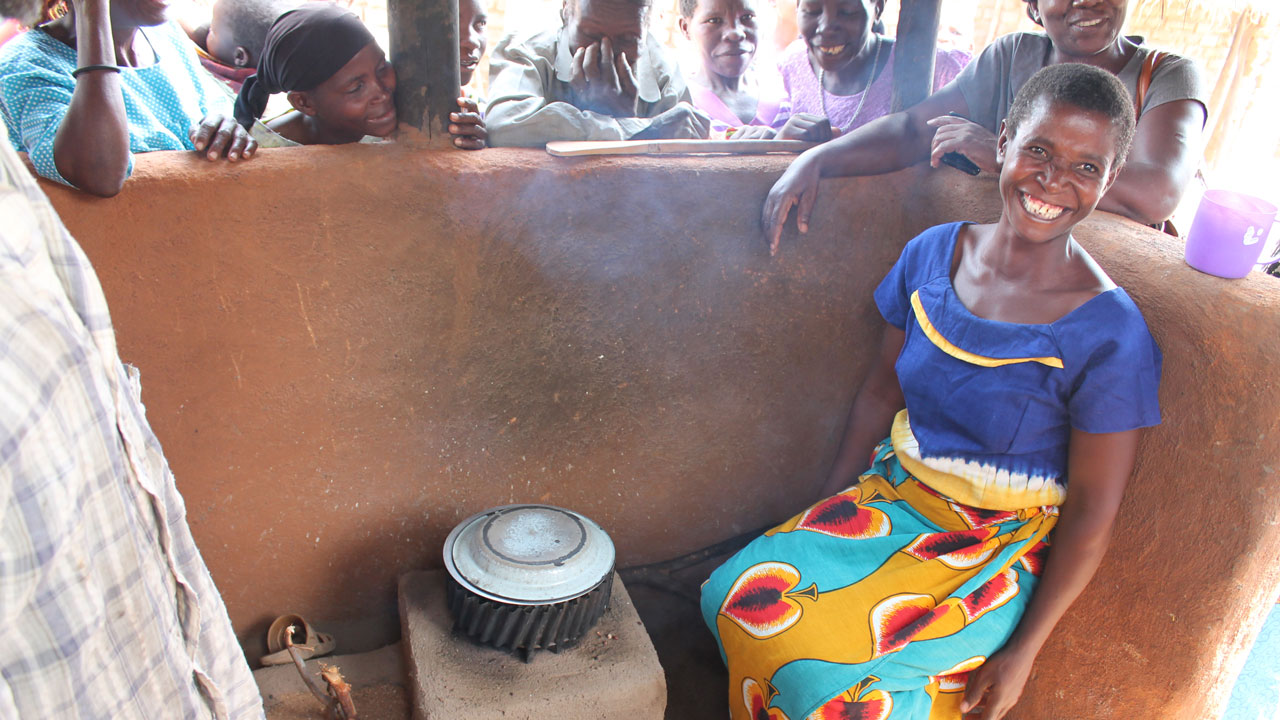
Tetra Tech’s Ramzy Kanaan collaboratively wrote this piece with John Fay and Admore Chiumia, energy specialists supporting the U.S. Agency for International Development (USAID) and UK Aid co-funded Modern Cooking for Healthy Forests (MCHF) project in Malawi.
A shift toward cleaner cooking by urban households—use of improved charcoal stoves, sustainable charcoal, alternative biomass energy, and liquefied petroleum gas—is the best way to slow forest cover loss in Malawi. Private sector engagement, with an explicit focus on greater inclusion of local actors along cleaner cooking value chains, is necessary for both adoption at-scale and long-term sustainability. Local enterprises, as compared to international companies, are well suited to lead this transition, replacing the status quo of inefficient charcoal stoves fueled by unsustainably harvested and illegally produced charcoal. Specifically, local entrepreneurs and other value chain actors are often uniquely positioned to deliver advantages across three essential components of this transition.
Acceptability
Locally-led companies have a detailed understanding of existing cooking technologies and the social and cultural preferences that inform local cooking practices. That understanding is essential to effectively create awareness of alternative cooking technologies that can be adopted at a scale capable of significantly reducing deforestation. For any alternative cooking approach to become the new status quo and be maintained long-term, it must be well aligned to local cooking practices and have actual advantages, over other options, that can be perceived by the person doing the household cooking. A deep understanding of cooking practices is necessary to introduce technologies that can achieve scale and sustainability, and local enterprises often have a higher level of familiarity and trust with the customers than foreign companies.
Affordability
Many cleaner cooking business models depend on scale because purchases of stoves and of fuel have low potential profit margin per customer because the disposable income of the target urban customers is often extremely low. Limiting operating costs of any business in the sector is essential for long-term sustainability, because high overheads reduce the likelihood that the business can reach scale within a timeframe that enables it to become financially viable and survive. The overheads of foreign based companies are typically much higher when compared to local companies, providing a long-term advantage for local cost structures.
Accessibility
Last mile distribution in the urban cleaner cooking sector requires both infrastructure and networks to make stoves and fuel—particularly fuel—easily accessible to each urban household. Replicating the existing distribution channels for illegal charcoal presents a significant challenge to large-scale adoption. Presently, illegal charcoal is often available within a short walk from the end customer’s home. For any alternative to compete with this status quo, the process of getting fuel to urban households must be replicated. This requires co-opting existing distribution channels or creating new channels. Local companies will often have an advantage over foreign companies because of their ability to replicate those channels that can make the fuel accessible to customers at an affordable cost basis.
While local companies hold many of these advantages, they often lack market information and the access to finance—commercial or donor—needed to achieve scale. To help address these gaps, the USAID and Department for International Development co-funded MCHF project is conducting consumer market research and compiling market information to encourage entrepreneurs to access the project’s results-based finance. This will be coupled with technical assistance and business linkage support to local companies to increase the probability of long-term sustainability and scale within the cleaner cooking sector.
About the authors
Ramzy Kanaan
Ramzy Kanaan is the chief of party for the MCHF project.
He holds a Bachelor of Arts in Biology from the University of Vermont and a Master of Arts in Geography and International Development from Clark University Graduate School. Ramzy has more than 20 years of experience designing, implementing, and managing natural resource management projects in Africa.
John Fay
John Fay is a consultant and entrepreneur with more than 15 years of experience designing and implementing market-led development projects in southern Africa.
He is the managing director of Shared Value Africa Services International, an outsourcing services and consulting company based in Lusaka, Zambia. Previously, he was the managing director of VITALITE Zambia, a community distribution and service company focused on making renewable energy products available and affordable. He previously worked for Cardno Emerging Markets and Investment Bank Riley FBR. John holds a Bachelor of Arts from Duke University, a Master of Business Administration from Cornell University, and a PhD from the University of Cape Town’s Graduate School of Business.
Admore Chiumia
Admore Chiumia is the MCHF Alternative Energy and Fuel-Efficient Cooking Technology Specialist. An “energypreneur” and the founder of Green Impact Technologies.
He has more than eight years of professional experience working to expand delivery of energy solutions to Malawian households. Admore was educated in energy systems at Mzuzu University in Malawi with supplementary training at University of California Davis.